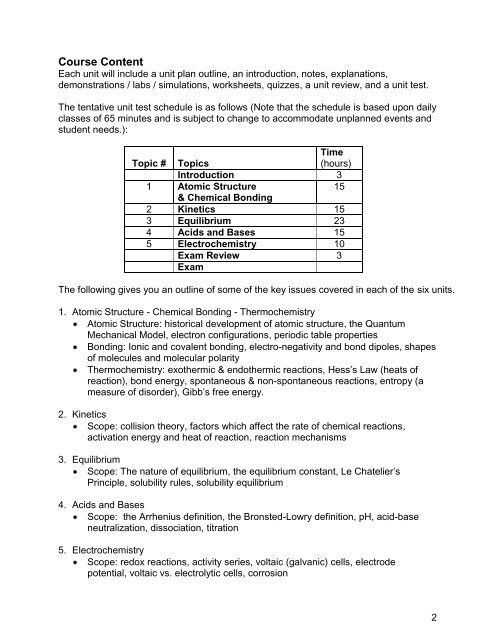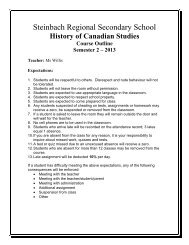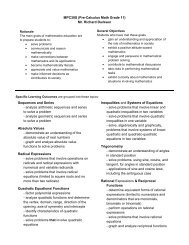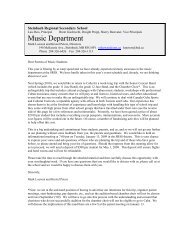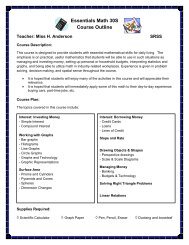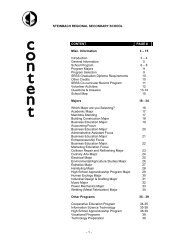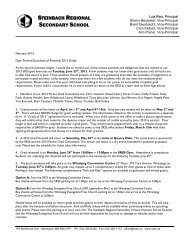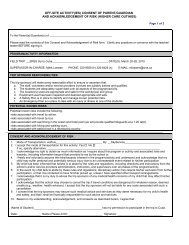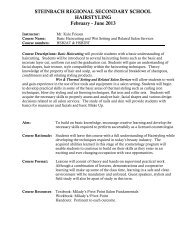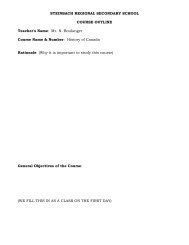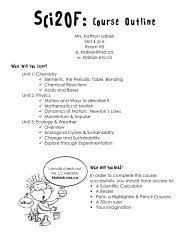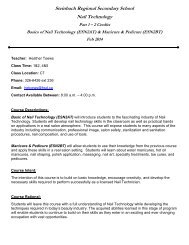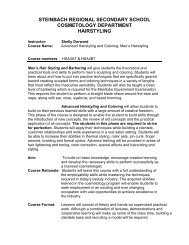ISO 9001:2000 Certification Process Management Meeting Agenda
ISO 9001:2000 Certification Process Management Meeting Agenda
ISO 9001:2000 Certification Process Management Meeting Agenda
Create successful ePaper yourself
Turn your PDF publications into a flip-book with our unique Google optimized e-Paper software.
Course Content<br />
Each unit will include a unit plan outline, an introduction, notes, explanations,<br />
demonstrations / labs / simulations, worksheets, quizzes, a unit review, and a unit test.<br />
The tentative unit test schedule is as follows (Note that the schedule is based upon daily<br />
classes of 65 minutes and is subject to change to accommodate unplanned events and<br />
student needs.):<br />
Topic # Topics<br />
Time<br />
(hours)<br />
Introduction 3<br />
1 Atomic Structure<br />
15<br />
& Chemical Bonding<br />
2 Kinetics 15<br />
3 Equilibrium 23<br />
4 Acids and Bases 15<br />
5 Electrochemistry 10<br />
Exam Review 3<br />
Exam<br />
The following gives you an outline of some of the key issues covered in each of the six units.<br />
1. Atomic Structure - Chemical Bonding - Thermochemistry<br />
Atomic Structure: historical development of atomic structure, the Quantum<br />
Mechanical Model, electron configurations, periodic table properties<br />
Bonding: Ionic and covalent bonding, electro-negativity and bond dipoles, shapes<br />
of molecules and molecular polarity<br />
Thermochemistry: exothermic & endothermic reactions, Hess’s Law (heats of<br />
reaction), bond energy, spontaneous & non-spontaneous reactions, entropy (a<br />
measure of disorder), Gibb’s free energy.<br />
2. Kinetics<br />
Scope: collision theory, factors which affect the rate of chemical reactions,<br />
activation energy and heat of reaction, reaction mechanisms<br />
3. Equilibrium<br />
Scope: The nature of equilibrium, the equilibrium constant, Le Chatelier’s<br />
Principle, solubility rules, solubility equilibrium<br />
4. Acids and Bases<br />
Scope: the Arrhenius definition, the Bronsted-Lowry definition, pH, acid-base<br />
neutralization, dissociation, titration<br />
5. Electrochemistry<br />
Scope: redox reactions, activity series, voltaic (galvanic) cells, electrode<br />
potential, voltaic vs. electrolytic cells, corrosion<br />
2


